(Dobbs) Maybe Worst Of All, This President Is Proud Of It.
No due process, no respect for human rights, no obedience to international law.
What the President of the United States and the Secretary of Defense have been doing is as plainly against international law as an airplane hijacking.
In the Caribbean, allegedly justified by their unsupported claims about boatloads of narco-traffickers, they are firing missiles at vessels, without any kind of due process, and carrying out extrajudicial executions. Another word for it, some say, is murder. As even Kentucky’s Republican Senator Rand Paul protested, “All of these people have been blown up without us knowing their name, without any evidence of a crime. We basically are summarily executing people who are accused of something.”
As if evidence of a crime even matters to the Trump regime. It doesn’t, as we’ve learned from their execution of raids on American soil to arrest illegal immigrants, busting down doors, smashing through windows, trashing people’s homes.
After ProPublica reviewed every case it could find from across the country, it reported last week that it isn’t only illegal immigrants who’ve been swept up. It’s Americans.
Here is a portion of what it published:
“Americans have been dragged, tackled, beaten, tased, and shot by immigration agents. They’ve had their necks kneeled on. They’ve been held outside in the rain while in their underwear. At least three citizens were pregnant when agents detained them. One of those women had already had the door of her home blown off while Department of Homeland Security Secretary Kristi Noem watched. About two dozen Americans have said they were held for more than a day without being able to phone lawyers or loved ones.”
And yet, “Agents have arrested about 130 Americans, including a dozen elected officials, for allegedly interfering with or assaulting officers, yet those cases were often dropped.”
So much for “evidence of a crime.” But of course arresting people and asking questions later is one thing. Killing them in the water, then presenting zero evidence that they were moving drugs, is another. But that doesn’t matter to Pete Hegseth or Donald Trump. On Saturday, after the seventh boat was blasted, the president confidently posted this: “It was my great honor to destroy a very large DRUG-CARRYING SUBMARINE that was navigating towards the United States on a well known narcotrafficking transit route.”
Maybe it wasn’t but maybe it was. Throw a dart often enough at a target and odds are, eventually you’ll land a bulls-eye. Because yes, there are “drug-carrying submarines” moving product out of South America. While shooting a documentary a few years ago in both Colombia and Venezuela about the drug war, DEA officials based at our embassy in Bogota took my camera crew and me out to Colombia’s Pacific coast. They showed us a fiberglass vessel they had captured, something they called a “one-way” boat. It wasn’t actually a submarine, it was a “submersible,” visible only about a foot above the water’s surface with the cargo space submerged, designed, depending on its size, to smuggle out up to ten tons of cocaine. The merchandise was lucrative enough that after a single trip, the submersible would be trashed.
So it’s plausible that at least some of the boats that have been blown up were full of narcotics. In my interview about the cartels with the Drug Enforcement Administration’s chief officer on the continent, he pinched his thumb and his forefinger tightly together and told me, “We stay only about this far ahead of them.”
But how can we know that every boat the U.S. has fired on was full of drugs? Beyond airborne videos of the missile attacks themselves, the Trump regime has shown us nothing, nothing, to back up their allegations that the boats were tools, as Hegseth put it on X, of “the Al Qaeda of the Western Hemisphere.”
When asked to show some evidence, all the White House offers is more unsupported rhetoric: “All of these decisive strikes have been against designated narco-terrorists bringing deadly poison to our shores.” We certainly don’t want them bringing deadly poison to our shores, but we also don’t want to be killing people until we know that that’s what they’re doing.
There are all sorts of reasons to have doubts.
First, drug war experts say that drug boats traversing the Caribbean in the areas of the U.S. strikes typically are headed for islands from which their load of narcotics is then moved to Europe and Africa, not the United States.
Second, if the administration can’t even accurately identify gang members and drug dealers, let alone U.S. citizens who are right in front of them during its recent raids on American soil, how can we trust it to accurately identify criminals on boats speeding below them in the Caribbean Sea?
Third, Trump has posted that the people being killed in the boat are “terrorists.” But how credible can he be when he and his people also say the millions of peaceful protesters in last Saturday’s No Kings marches were terrorists too?
Fourth, the president of Colombia has very publicly insisted that one of the boats the U.S. destroyed was a fisherman’s boat that had lost its power and gone adrift. Naturally, our president’s knee-jerk response was to call the South American president an “illegal drug dealer” with “a fresh mouth toward America.” But until proven wrong, the Colombian president’s argument must be considered.
And fifth, there is the abrupt and unsurprising resignation last week of Admiral Alvin Holsey, the commander of the U.S. Southern Command, which has been tasked with carrying out the air attacks on the boats in the Caribbean.
Holsey was only less than a year into what normally is a three year assignment. He has not confirmed that his resignation reflects his discomfort with the attacks, but where there’s smoke, sometimes there’s fire. The New York Times has reported that Holsey had “raised concerns” about the legality of what he was told to do. “As a matter of international law,” The Times wrote, “for a nonstate group to qualify as a belligerent in an armed conflict — meaning its members can be targeted for killing based on their status alone, not because of anything they specifically do — it must be an ‘organized armed group’ with a centralized command structure, and engaging in hostilities.” Drug suspects on the water— if the administration even has had firm reason to suspect them— don’t qualify.
There’s one more side issue that underscores the carelessly hasty actions of this administration, and it has to do with the fourth point above, about the president of Colombia. Last week after he contradicted Trump, Trump went further than just calling him an “illegal drug dealer.” He said he would cut off aid to Colombia. What’s important here is this: that aid goes toward stopping the fabrication and flow of drugs.
When I did the drug war documentary down there, we went along on Blackhawk helicopter gunships with Colombia’s drug police on raids to destroy cocaine factories, deep in the jungle, where coca leaves are processed into cocaine paste before it is refined to become pure cocaine.
Officially they call them the Colombian National Police but they are in fact jungle fighters. Their working title is “las junglas.” They are a dedicated army, outfitted from Blackhawks to lip balm by the United States of America. They have to be well equipped, because the narco-traffickers sometimes ring their facilities with land mines and protect their perimeters with machine guns. Several hundred drug police have been killed in combat.
Now the question is, who does President Trump think he’s hurting? Only Colombia? Not a chance. The whole purpose of our support for Colombia’s drug police has been to reduce the flow of drugs to the United States. Cut off aid, and that flow likely picks up speed again.
The reckless actions of the Trump regime are turning this nation into the kind of place we used to criticize and penalize when we saw it happening in Communist countries, in dictatorships, in the Third World. No due process, no respect for human rights, no obedience to international law.
And maybe worst of all, this president is proud of it.
Over more than five decades Greg Dobbs has been a correspondent for two television networks including ABC News, a political columnist for The Denver Post and syndicated columnist for Scripps newspapers, a moderator on Rocky Mountain PBS, and author of two books, including one about the life of a foreign correspondent called “Life in the Wrong Lane.” He also co-authored a book about the seminal year for baby boomers, called “1969: Are You Still Listening?” He has covered presidencies, politics, and the U.S. space program at home, and wars, natural disasters, and other crises around the globe, from Afghanistan to South Africa, from Iran to Egypt, from the Soviet Union to Saudi Arabia, from Nicaragua to Namibia, from Vietnam to Venezuela, from Libya to Liberia, from Panama to Poland. Dobbs has won three Emmys, the Distinguished Service Award from the Society of Professional Journalists, and as a 39-year resident of Colorado, a place in the Denver Press Club Hall of Fame.
You can learn more at GregDobbs.net

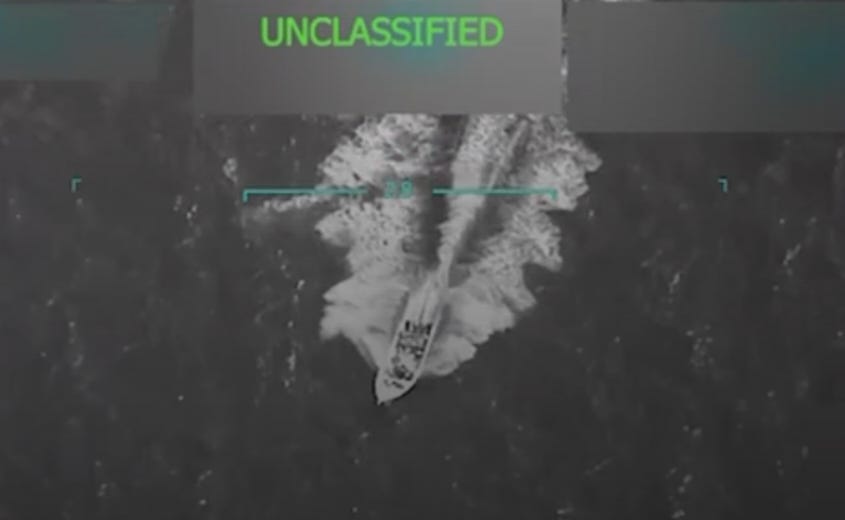
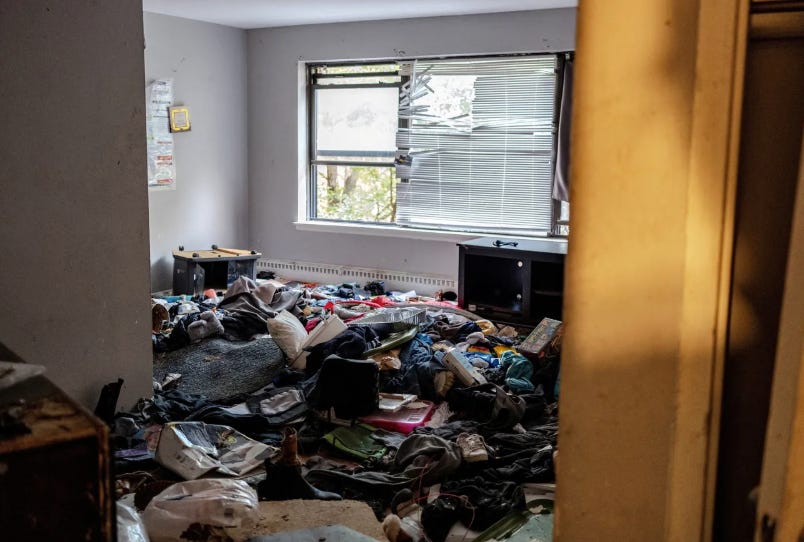
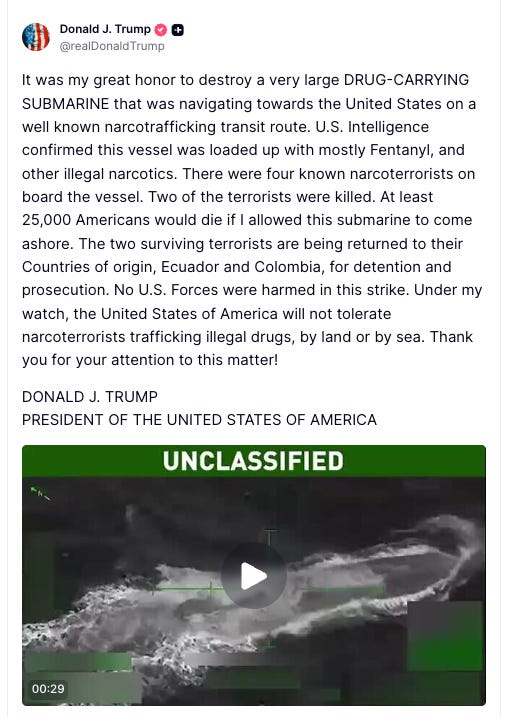
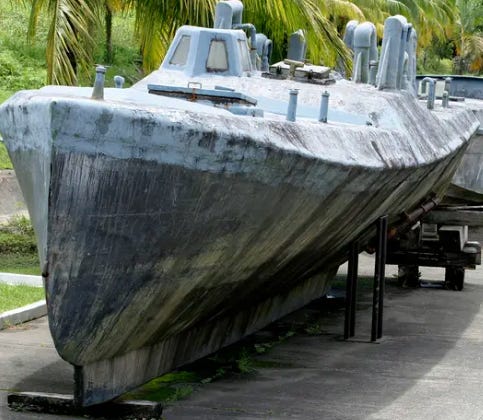
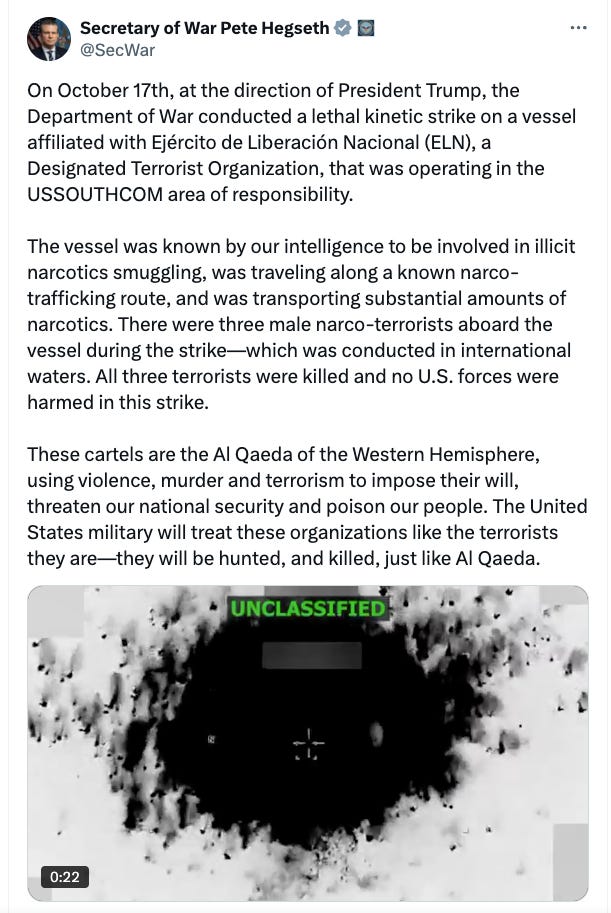
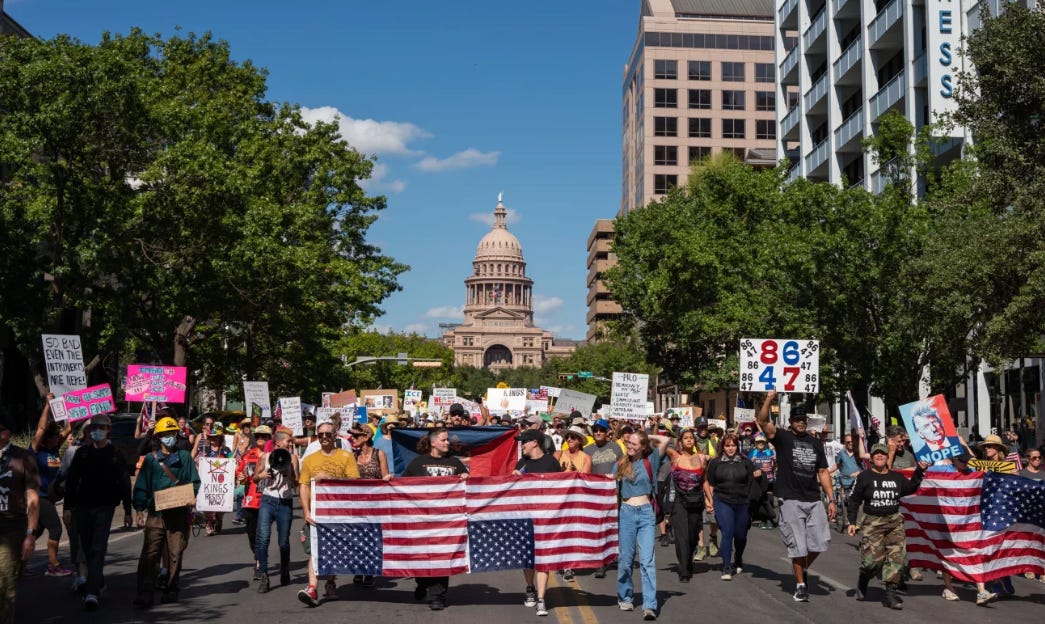
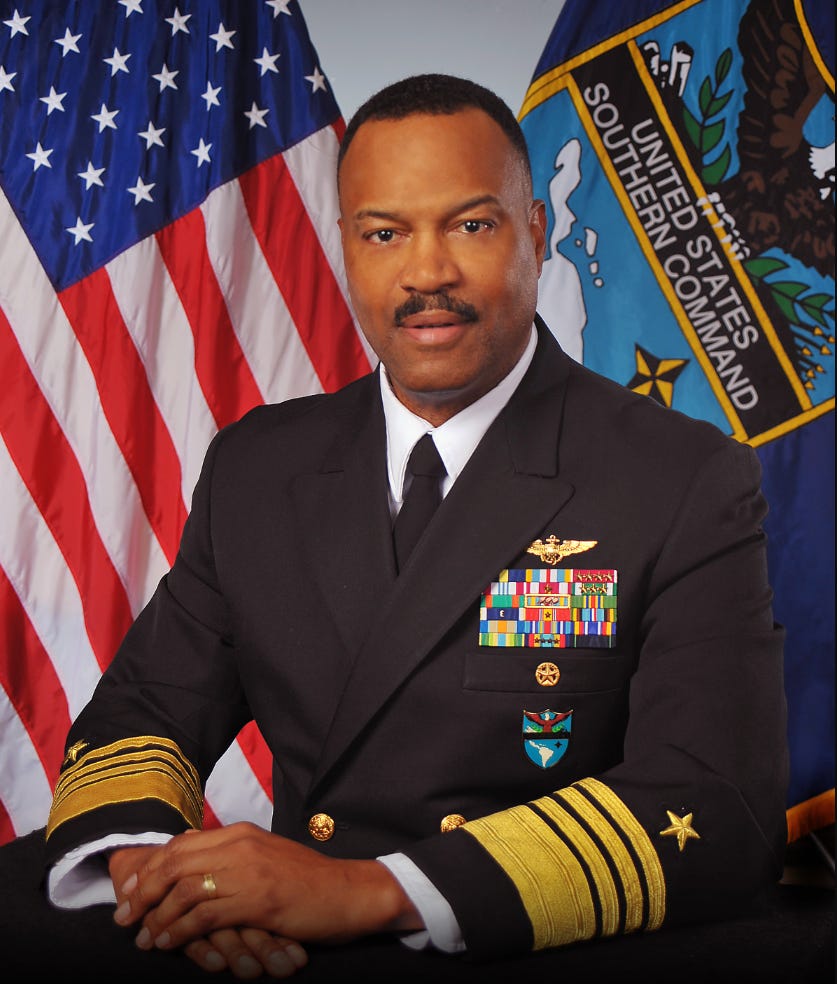
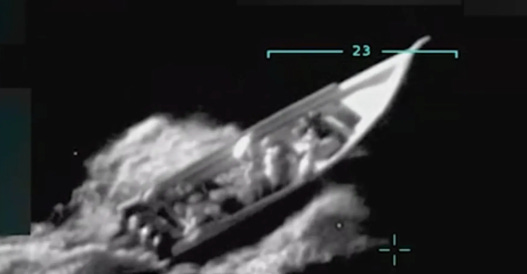
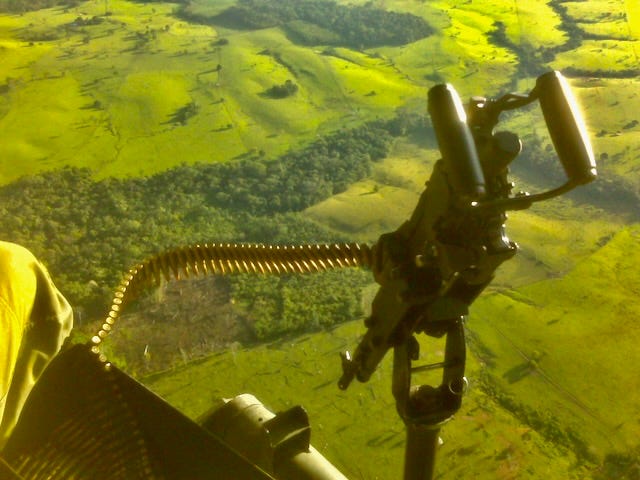
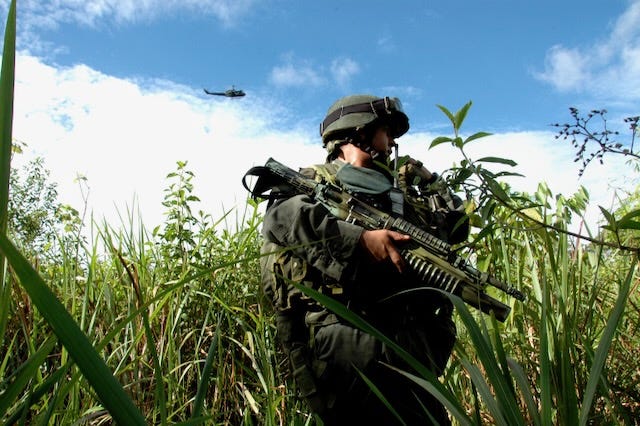
what happens to the drugs that end up in the water? Why hasn’t someone taken legal action against those who initiated and approve the missile strikes on the boats? How can the government continue breaking into places of residence without due process? Why are we allowing these things to happen?
How could voters be so ignorant.